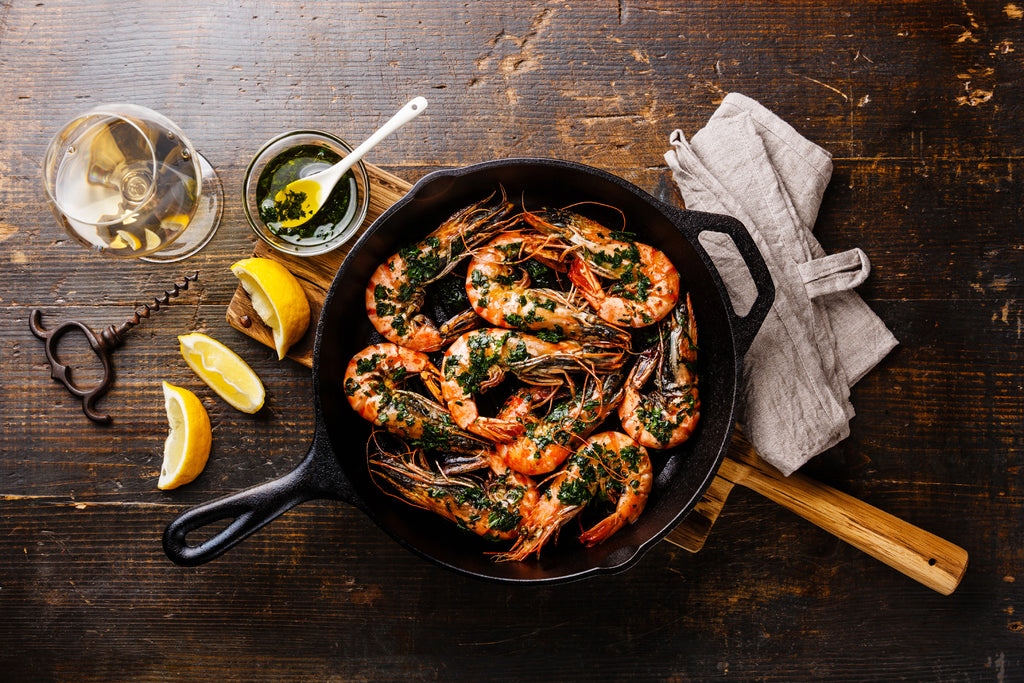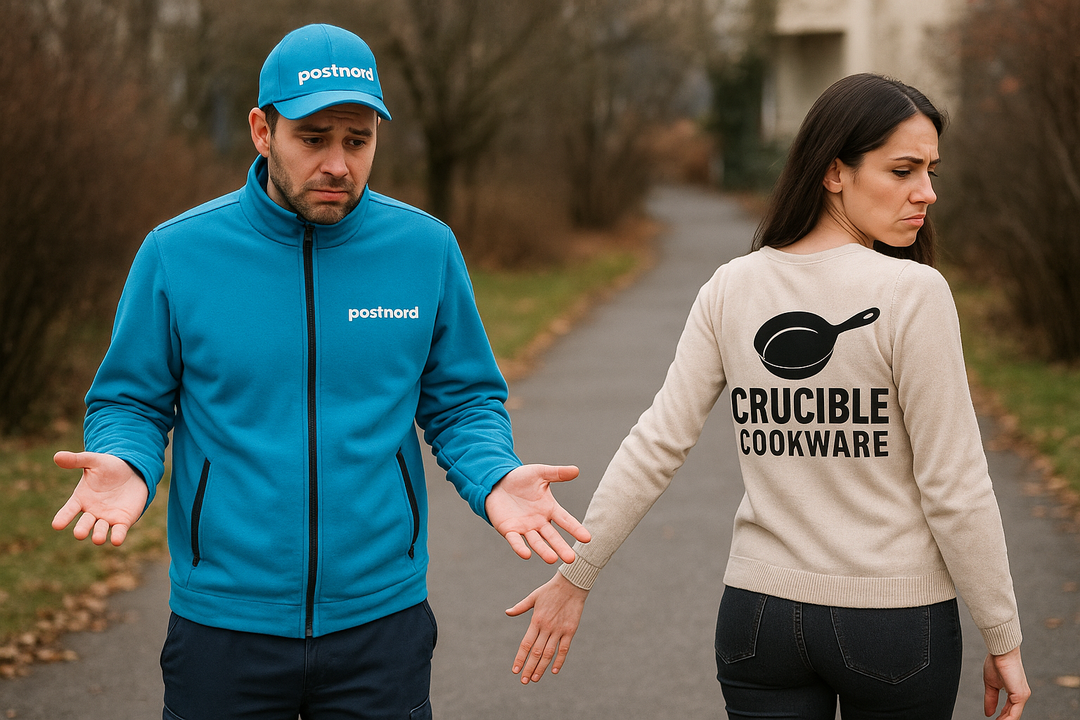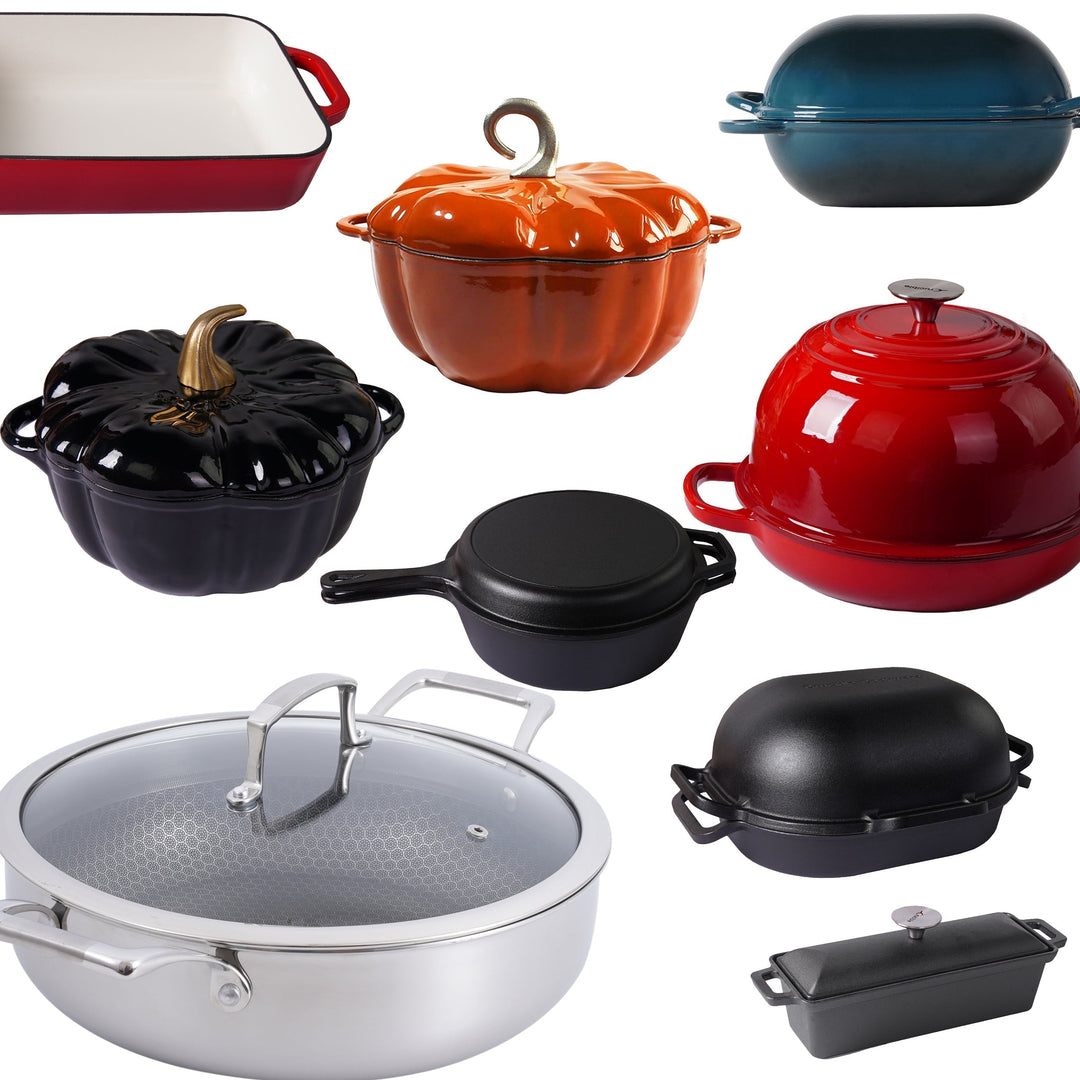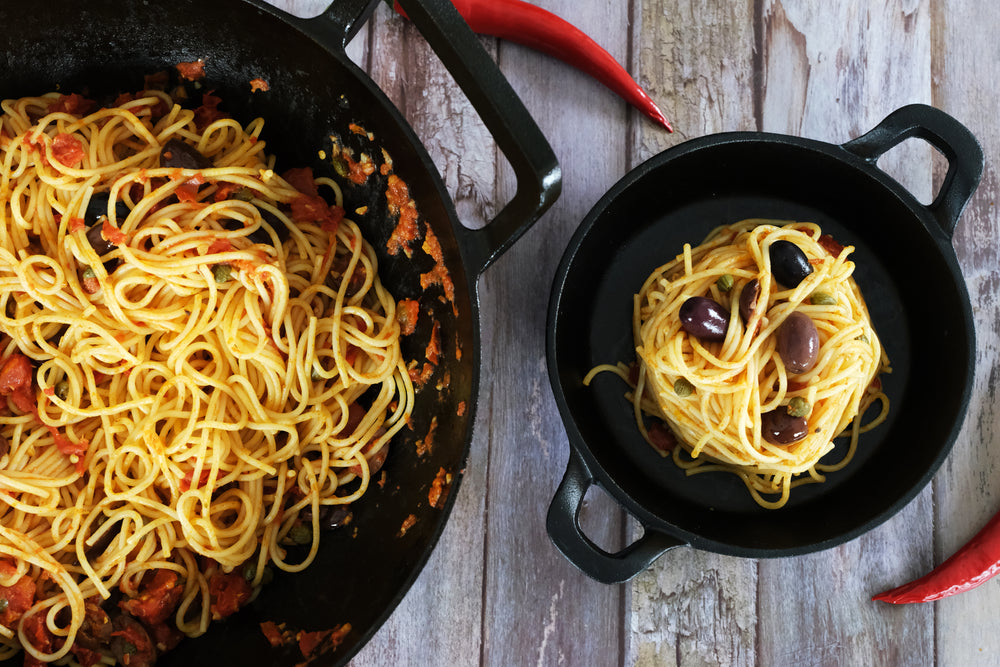Poêle en fonte VS. Plaque en fonte

Les poêles en fonte et les plaques de cuisson en fonte sont deux options populaires de batterie de cuisine qui offrent un certain nombre d'avantages, mais présentent aussi quelques inconvénients. Dans cet article de blog, nous examinerons de plus près les avantages et les inconvénients de chacune afin que vous puissiez prendre une décision éclairée lors de l'achat de votre prochaine batterie de cuisine en fonte.

Avantages d'une poêle en fonte :
- Durable : les poêles en fonte sont extrêmement durables et peuvent durer des décennies avec un entretien et un soin appropriés.
- Chauffage uniforme : les poêles en fonte chauffent uniformément et retiennent bien la chaleur, ce qui les rend idéales pour une large gamme de techniques de cuisson, y compris le saisissage, la friture et la cuisson au four.
- Polyvalent : les poêles en fonte peuvent être utilisées sur une variété de surfaces de cuisson, y compris la cuisinière, le four et le gril.
- Surface antiadhésive naturelle : avec un culottage et un entretien appropriés, la poêle en fonte peut développer une surface antiadhésive naturelle qui cuit les aliments uniformément et empêche qu'ils collent.
- Ajoute du fer aux aliments : la poêle en fonte peut ajouter du fer aux aliments, ce qui peut être bénéfique pour les personnes souffrant de carences en fer.
- Peut être utilisé comme un plat allant au four pour les casseroles et la cuisson.
Inconvénients d'une poêle en fonte :
- Lourd : Les poêles en fonte peuvent être assez lourdes, ce qui les rend difficiles à manipuler pour certaines personnes.
- Nécessite un culottage et un entretien : Les poêles en fonte doivent être culottées et entretenues correctement pour prévenir la rouille et assurer des performances optimales.
- Non sûr pour le lave-vaisselle : Les poêles en fonte ne sont pas sûres pour une utilisation au lave-vaisselle et doivent être lavées à la main.
- Non adapté aux aliments acides : Les poêles en fonte ne doivent pas être utilisées pour des aliments acides car cela peut altérer le goût des aliments et parfois enlever la couche de culottage (bien qu'il soit facile de re-culotter).

Avantages d'une plaque en fonte :
- Grande surface de cuisson : Une plaque en fonte offre une grande surface de cuisson, ce qui la rend idéale pour cuisiner de grandes quantités d'aliments.
- S'il s'agit d'une plaque réversible, une poêle-gril est incluse dans le prix.
- Chauffage uniforme : Comme une poêle en fonte, une plaque en fonte chauffe uniformément et retient bien la chaleur, ce qui la rend parfaite pour cuire des crêpes, du bacon et d'autres aliments du petit-déjeuner.
- Polyvalent : Les plaques en fonte peuvent être utilisées sur diverses surfaces de cuisson, y compris la cuisinière, le four et le gril.
- Surface antiadhésive naturelle : avec un culottage et un entretien appropriés, la plaque en fonte peut développer une surface antiadhésive naturelle qui cuit les aliments uniformément et empêche qu'ils collent.
- Ajoute du fer aux aliments : La plaque en fonte peut ajouter du fer aux aliments, ce qui peut être bénéfique pour les personnes souffrant de carences en fer.
Inconvénients d'une plaque en fonte :
- Lourd : Les plaques en fonte peuvent être assez lourdes, ce qui les rend difficiles à manipuler pour certaines personnes.
- Nécessite un culottage et un entretien : Les plaques en fonte doivent être culottées et entretenues correctement pour prévenir la rouille et assurer des performances optimales.
- Non sûr pour le lave-vaisselle : Les plaques en fonte ne sont pas sûres pour une utilisation au lave-vaisselle et doivent être lavées à la main.
- Non adapté aux aliments acides : Les plaques en fonte ne doivent pas être utilisées pour des aliments acides car cela peut altérer le goût des aliments et parfois enlever la couche de culottage (bien qu'il soit facile de re-culotter).
- Convient uniquement aux aliments pouvant être cuits sur une surface plane.
En conclusion, les poêles et plaques en fonte offrent de nombreux avantages, notamment la durabilité, une répartition uniforme de la chaleur et la polyvalence. Elles développent également une surface antiadhésive naturelle grâce au culottage et ajoutent du fer aux aliments. Cependant, elles sont lourdes, nécessitent un culottage et un entretien appropriés, et ne sont pas sûres pour une utilisation au lave-vaisselle. Elles ne doivent pas non plus être utilisées pour des aliments acides. En fin de compte, le choix entre une poêle ou une plaque en fonte dépendra de vos besoins et préférences culinaires spécifiques.
















Laisser un commentaire